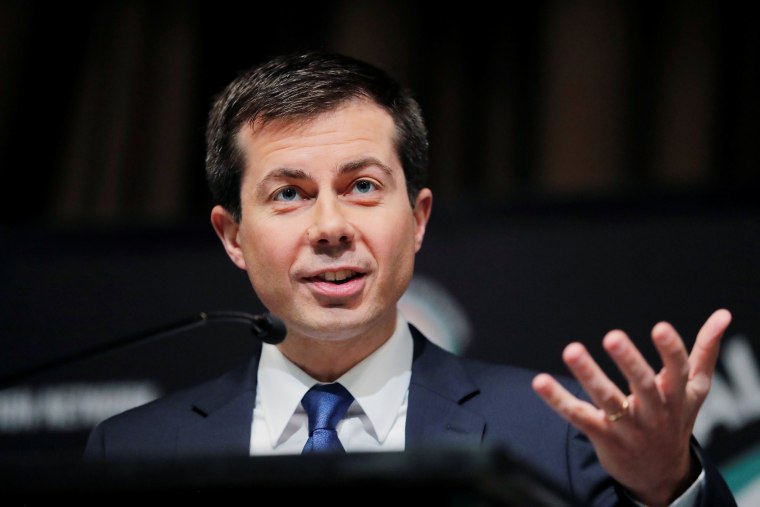Playing dirty has long been a popular strategy in politics, including digging up dirt on your opponents. If the person you are running against is losing, you are winning. But in the era of #MeToo, a disturbing tactic may be getting more common: sexual assault smear campaigns. The latest example of this gross maneuver is the apparent attempt to gin up false sexual assault accusations against Democratic presidential candidate Pete Buttigieg. The allegations, which have since been retracted, were apparently orchestrated by the same conservative activists who claimed to have information about allegations against special counsel Robert Mueller.
The allegations against Mueller, like the ones against Buttigieg, quickly fell apart. But in the zero-sum game of politics, the truth doesn’t always matter. Putting aside the patent immorality of such tactics, is there anything Buttigieg can do legally in this situation? It’s an interesting question.
Putting aside the patent immorality of such tactics, is there anything Buttigieg can do legally in this situation?
Buttigieg, the mayor of South Bend, Indiana, knows the stakes. One of the best ways to try to destroy opponents is to lodge or surface allegations of sexual misconduct against them. This misconduct can range from unwanted advances (inappropriate but not criminal) to sexual assault (criminal). Just ask former Sen. Al Franken, New York Attorney General Eric Schneiderman, former Arizona Congressman Trent Franks or former Congressman John Conyers — to name just a few.
SIGN UP FOR THE THINK WEEKLY NEWSLETTER HERE
The caveat here, of course, is that these often politically fatal allegations have not seriously harmed our current president. President Donald Trump has been caught on tape all but admitting to sexual assault, has been accused by almost two dozen women of sexual misconduct, and it appears to have done little to hurt his popularity, at least with his base.
While the conventional rules of politics do not apply to Trump, they are more likely to apply to his opponents. At least that is what the son of one of Trump’s campaign surrogates, David Wohl, appears to believe. Wohl’s son, Jacob Wohl, helped surface the accusations against Buttigieg alongside conservative lobbyist Jack Burman. Never mind that these accusations now appear to be fabricated.
Wohl and Burkman’s attempts to smear Buttigieg have been ineffective largely because of ineptitude. But the next person attempting to spread false accusations of sexual misconduct against a politician may not be quite so bumbling.
So what can Buttigieg, or any other candidate subject to false accusations of sexual misconduct, do in this scenario from a legal perspective?
The short answer is not much. If Buttigieg can demonstrate that Wohl and Burkman spread lies about him, in this case by posting the lies on a social media, he may be able to sue for libel, a form of defamation.
Defamation is a tort based on state law, and the elements vary slightly be state. In order to prove defamation in the District of Columbia, Buttigieg (or any other similar plaintiff in his situation) would essentially have to show that Wohl and Burkman made a false and defamatory statement and that they knew the statement was false or recklessly disregarded its falsity.
One of the constants in the legal system is how quickly technology changes to make our prior understanding of the law outdated, or even obsolete.
The fact that Buttigieg is a public figure changes the defamation standards. If Buttigieg were not Mayor Pete, but rather just Pete, your friendly neighbor from around the corner, he would only have to prove that Wohl and Burkman should have known that their statements were false. But even with this heightened standard, Buttigieg has a strong case against Wohl and Burkman if the allegations against them are true. (Whether he would choose to pursue such a high-profile case in the middle of a presidential campaign is another matter, however.)
Buttigieg would also have a claim against Wohl or Burkman if either of them ever told someone to lie to law enforcement, for instance by filing a false police report.
One of the constants in the legal system is how quickly technology changes to make our prior understanding of the law outdated, or even obsolete. Defamation laws were created well before the advent of social media and it is now easier to spread false and misleading information about people, both public and private, then judges and legislators could have imagined even 10 years ago. The potential damage done by a defamatory statement posted on social media is exponentially worse than it used to be.
The question is whether and how defamation laws should change with the changing technology. And the best answer is probably that if social media causes a defamatory statement to cause more damage, the monetary damages that person can recover should be greater. This could act as a deterrent to social media trolls who engage in particularly nasty online harassment.
But the best way to stop people like Wohl and Burkman from peddling lies is to stop buying them. That is easier said than done when citizens are not accustomed to being fact (or at least source) checkers. But an informed, slightly skeptical population will help regulate an election cycle sure to be filled with false and misleading information. The best way to combat someone who uses lies as weapons is to use the truth as a shield. And do your homework before you tweet.

